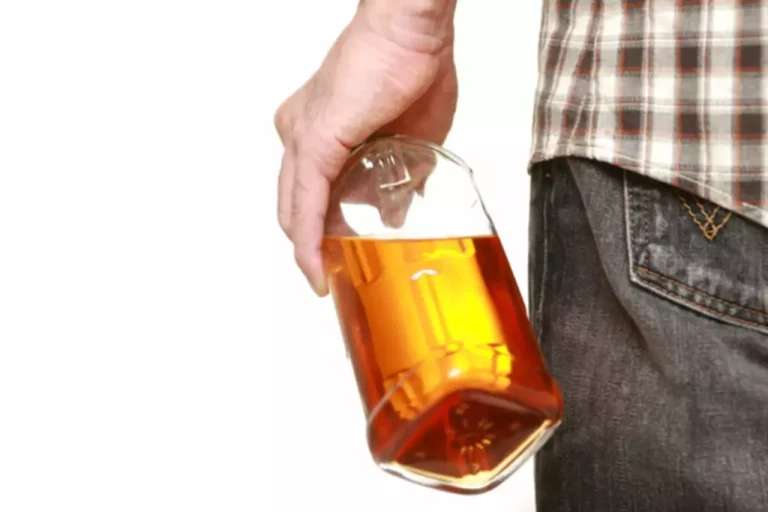
Consuming foods high in antioxidants, such as fruits and vegetables, may also help reduce hangover headaches. https://ecosoberhouse.com/ Avoiding drinks with caffeine, sugar, or other ingredients that may trigger headaches is also recommended. The primary reason behind alcohol-induced headaches is dehydration. When you drink alcohol, you’re consuming a diuretic; this impacts your kidneys, which alters the fluid levels in your body. That’s why drinking alcohol often causes people to use the bathroom frequently.
Can Alcohol Cause Chronic Headaches?

Alcohol can also impact the body’s regulation of neurotransmitters, specifically serotonin. Serotonin plays a crucial role in the regulation of blood vessel constriction and dilation. When alcohol is consumed, it can headache every time i drink alcohol disrupt the normal balance of serotonin in the brain, leading to increased blood vessel dilation and subsequent headaches.
What causes headaches after drinking alcohol?
Additionally, opting for lower-alcohol or alcohol-free beverages and consuming alcohol in moderation can also help minimize the risk of dehydration and subsequent headaches. To mitigate the impact of dehydration on alcohol-related headaches, it is essential to stay hydrated before, during, and after consuming alcohol. Drinking water or other hydrating beverages alongside alcohol can help maintain fluid balance and reduce the risk of dehydration.
Tips for Telling People You’re in Recovery

This leads to the accumulation of acetaldehyde, which is a somewhat toxic compound and also linked to hangovers. To provide the best possible chiropractic care to local families in Murfreesboro, Dr. Oscar Noriega DC tailors treatment plans for people of all ages in the Murfreesboro area! If you’ve been drinking heavily for a long time, good nutrition is even more important. If you’re sensitive to one or more of these, you may get a pounding headache after only a small amount of beer. If you are sensitive to one or more of the ingredients in beer, you may get an instant drug addiction headache from consuming it. If you’ve ever had just one beer and got a headache not long after, you’re seeing the principles in the list above in action.

Hangover Headache

However, it should be noted that, according to Scientific American, the vasodilator effect of alcohol reverses when you drink higher levels of alcohol. Incidentally, this is also why you might feel dizzy or have extreme thirst after hours of heavy drinking. The short-term effects of alcohol usually manifest in the form of a hangover. Alcohol stimulates the pancreas to produce toxins that can cause pancreatitis.
Explaining Sensitization in the Context of Addiction Relapse
- Estimates of lost revenues due to reduced job productivity and absenteeism from alcohol run as high as $148 billion a year in the U.S. alone.
- Include how you felt the prior 48 hours as well as any stress or anxiety you were under at the time.
- There are a variety of reasons why this potent chemical can cause a headache such as its ability to dilate the blood vessels.
- Certain ethnic groups (Japanese, for example) have a genetically reduced ability to break down acetaldehyde, the main byproduct of alcohol, as it is first processed in the liver.
- Alcohol disrupts your sleep quality, but get as much sleep as you can, crappy or otherwise.
Additionally, alcohol can irritate the lining of the stomach, leading to increased risk of chronic headaches. Alcohol-induced headaches occur when alcohol causes the blood vessels in the brain to expand, leading to a throbbing headache. Alcohol is also a diuretic, meaning it can cause dehydration, which can also lead to a headache. Additionally, alcohol can irritate the lining of the stomach, causing nausea and increasing the risk of a headache.
- With the huge focus on organic foods and what we all eat, there should be as much attention put on what we drink.
- Other factors, such as alcohol’s impact on blood vessels, congeners in alcoholic beverages, and individual sensitivity to alcohol, can also contribute to the development of headaches.
- You think that hangover headaches only happen to people who drink a lot over the course of several hours.
- Sulfites have been a popular scapegoat for all sorts of ailments since it became mandatory in the 1990s to label them on wines in the U.S.
- In people without a history of headaches, taking pain relievers regularly for another condition such as arthritis hasn’t been shown to cause medication overuse headaches.
Many people have experienced a headache after drinking alcohol — especially after drinking too much. While headaches are generally recognized as a side effect of alcohol in many people, its reputation as a migraine headache trigger may be overestimated. Avoiding alcohol-related headaches involves a combination of responsible drinking and making smart choices before, during, and after consuming alcoholic beverages. Additionally, people with a history of migraines may experience longer-lasting headaches after drinking alcohol.
- This is believed to happen due to alcohol widening the blood vessels, which allows more blood to flow into the brain.
- According to research also, women are more likely to experience headaches than mean after drinking alcoholic beverages.
- We have already discussed that a migraine is a common headache experienced after drinking alcohol, but the alcohol-induced headache may fall into one of two categories.
- Once in the brain it causes a chemical release that leads to pleasurable feelings, and it lessens inhibitions by depressing certain frontal lobe functions.
- If you try to stop drinking alcohol but find yourself giving in or experiencing withdrawal symptoms, now could be the time to reach out for some help before it gets worse.
- You may think that a single glass of wine might not be enough to cause an alcohol-induced headache, but this isn’t necessarily true.
How to Prevent Teen Relapse Over the Summer
Ibuprofen and aspirin can help relieve headaches and pains, but you should avoid acetaminophen. Acetaminophen is toxic to the liver, compounding alcohol’s effect on the organ. Blood alcohol concentration (BAC) refers to the amount of alcohol in your blood in relation to the amount of water in your blood. Two people can have the same blood alcohol levels, but their BAC will differ. This is because blood alcohol concentrations are not the same for everyone. The carbon dioxide content in champagne causes quick alcohol absorption into the bloodstream.



